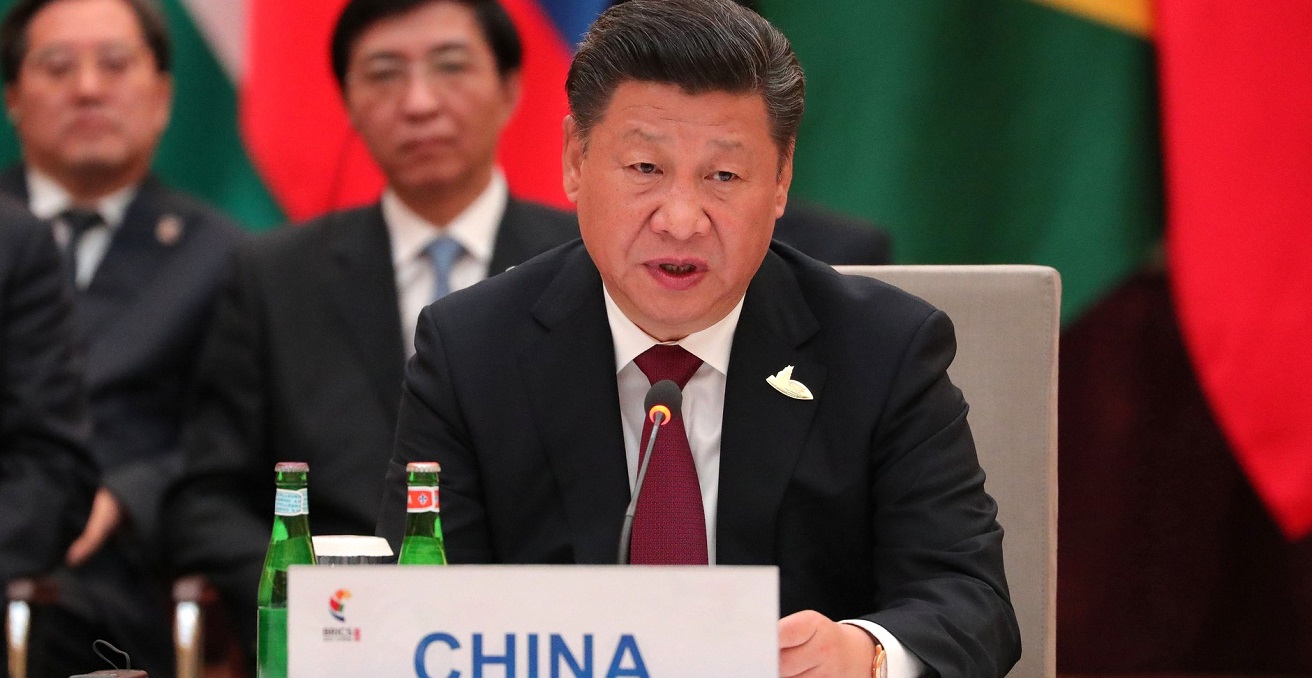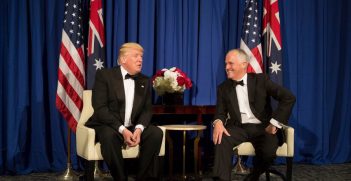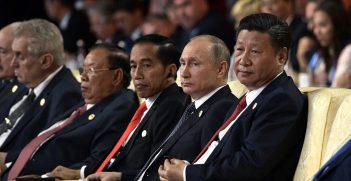Xinjiang and Australia-China Relations: Time to Get Past What-Aboutism and the Wolverines

The Australia-China relationship is in a parlous state. Claims and counter-claims are made about whether China or Australia is most at fault, and there is debate about what is ultimately the root cause of this decline.
Beyond the relationship itself, the state of Australia’s China debate is also increasingly toxic. Those who recognise the risks of engaging with China but still advocate for continued engagement have been excoriated as “craven,” or worse. Those sounding the alarm bells about Beijing’s malign intentions, in turn, have been accused of sowing a “China panic.”
The demonstrable shift toward a more adversarial relationship – a “new Cold War” defined by “extreme competition” – between China as Australia’s largest trading partner, and the United States as Australia’s main ally, has further sharpened these divides under both the Trump and Biden administrations.
Nowhere is this division more unhelpful than in the context of Australia’s response to the ongoing human rights abuses of Uyghur and other Turkic Muslim ethnic minorities in Xinjiang. Unfortunately, the handling of this issue in Australia’s China debate is increasingly held captive to broader concerns about Australia’s role in the increasingly overt Sino-US strategic competition.
The evidence that large-scale human rights abuses are occurring in Xinjiang has been clear for some time. Analysis based on Chinese government procurement contracts for construction of these centres and Google Earth satellite imaging has revealed the existence of hundreds of large, prison-like facilities throughout Xinjiang. One of the largest detention centres, Dabancheng, near the regional capital Ürümqi alone is estimated to have a capacity to hold up to 130,000 people. There remains debate about how many people are actually detained in these facilities. However there is no doubt that they exist and are part of a systematic effort to “re-educate” Turkic Muslim minorities. This is a fact now openly celebrated by the Chinese authorities through official policy documents, and a spate of documentaries aired on China Global Television Network.
Witness and survivor testimonies have also provided accounts of what occurs within the detention centres. Although framed by Beijing as “transformation through re-education” centres, the testimonies of such witnesses and survivors reveal them to be facilities in which individuals are subjected to deeply invasive forms of surveillance and psychological stress as they are forced to abandon their native language, religious beliefs, and cultural practices, and in some instances, endure sexual abuse.
Outside of the detention centres, the Turkic Muslim population of the region exists in a “carceral state” where they are subjected to a dense network of high-tech surveillance systems, checkpoints, and interpersonal monitoring which severely limit all forms of personal freedom.
Yet this evidence has been used and interpreted in fundamentally different ways in Australia’s China debate. Two broad trends are apparent here.
One reflects the influence of the so-called “Wolverines,” a group of MPs with hawkish views on China, supported by more bellicose voices in the commentariat. They have used human rights abuses in Xinjiang as a cudgel to rhetorically beat not only Beijing but also those in Australia deemed to be “soft” on China. For such observers, Beijing’s “program of genocide in Xinjiang” is but further proof that Australia confronts a “fascist power that is crushing human liberty at home” and “using brute force to make illegal territorial grabs abroad,” thus justifying heightened “national security” measures such as the Foreign Interference Transparency Scheme. To do anything else would be to yield Australia’s “independence to a rising fascist power.” The shrill nature of debate – punctuated by inflated panic over the “hidden hand” of Chinese influence and interference – has also harmed societal cohesion by casting doubt on the loyalty of Chinese-Australians.
On the other side, a dangerous “what-aboutism” has begun to permeate a segment of the other side of the China debate. It attempts to deflect the “Wolverine” discourse by pointing to human rights abuses by Australia and the United States or to anti-China geopolitical motivations or both. The conclusion of a recent article by former diplomat and long-term activist Alison Broinowski neatly encapsulates each of these elements.
According to Broinowski, before “Australians join the Western pile-on over the Uyghur ‘genocide’,” the country should consider comparing its “‘concentration camps’ in Nauru and Manus Island with China’s ‘education’ centres in Xinjiang” or the fact that, Australia doesn’t “allow Australian foreign fighters or their families to return from Syria, as China does.” This is a classic example of what-aboutism: seeking to distract consideration of an uncomfortable reality – in this case the Chinese Communist Party’s mass repression of an ethnic minority – with counter claims about the malign actions of others.
Broinowski’s article also includes a second theme in Xinjiang crisis denialism: that those researchers and commentators highlighting abuses in Xinjiang are simply either active agents of the United States and the CIA, or “share far-right religious convictions and enmity towards China.” Even a cursory examination of the many academics, researchers, and journalists who have published material on the current crisis in Xinjiang would reveal this characterisation to be, at best, misleading and, at worst, actively mendacious.
Each of these dynamics are entirely unhelpful. They do nothing to inform public discourse on what Australia’s policy response should be. This is because they are primarily concerned with rhetorical point-scoring rather than establishing an evidence base for policy prescription. A healthy debate should be encouraged, but Australians ultimately deserve better than the cheap bifurcated rhetoric they are currently forced to endure.
Dr Michael Clarke is Associate Professor at the Crawford School of Public Policy, ANU, and a Visiting Fellow at the Australia-China Relations Institute, University of Technology Sydney. He is the author of Xinjiang and China’s Rise in Central Asia: A History (Routledge 2011); editor (with Anna Hayes) of Inside Xinjiang: Analysing Space, Place and Power in China’s Muslim Far Northwest, (Routledge 2016); editor of Terrorism and Counterterrorism in China: Domestic and Foreign Policy Dimensions (Oxford University Press 2018); and editor (with Matthew Sussex and Nick Bisley) of The Belt and Road Initiative and the Future of Regional Order in the Indo-Pacific (Lexington Books 2020).
This article is published under a Creative Commons License and may be republished with attribution.





